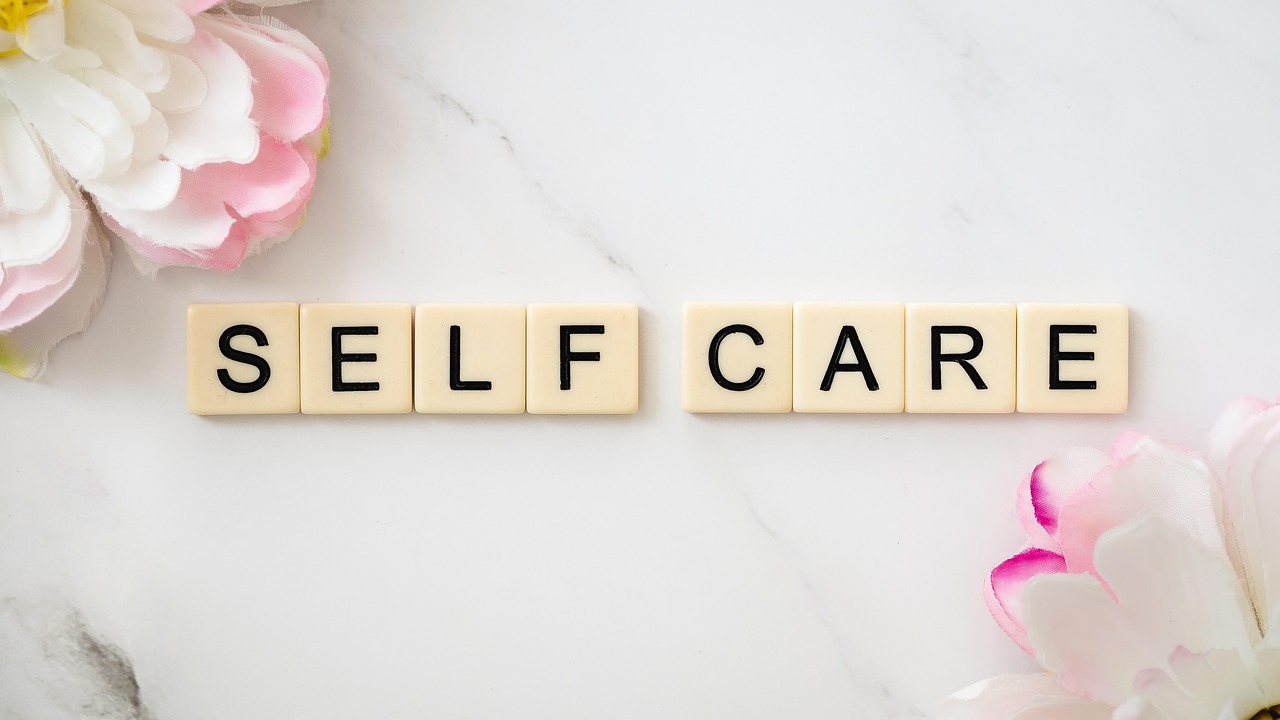10 Natural Remedies To Reduce Stress And Relax Your Mind

Strong 8k brings an ultra-HD IPTV experience to your living room and your pocket.
Overwhelmed by the daily grind and looking for natural ways to unwind? In this top 10 list, we'll explore effective natural remedies that can help reduce stress and relax your mind. From soothing herbal teas to calming breathing exercises, these remedies are easy to incorporate into your daily routine to promote a sense of tranquility and well-being. Let's look into the world of natural stress-relief solutions!
Key Takeaways:
- Exercise regularly: Engaging in physical activity can help reduce stress levels and promote relaxation by releasing endorphins, the body's natural mood elevators.
- Practice deep breathing techniques: Deep breathing exercises can help calm the nervous system, reduce anxiety, and promote a sense of calm and relaxation.
- Use aromatherapy: Essential oils like lavender, chamomile, and rosemary can help reduce stress and anxiety, promoting relaxation and improving overall well-being.
Deep Breathing Techniques
Diaphragmatic breathing
With diaphragmatic breathing, you focus on fully engaging your diaphragm, a large muscle located below your lungs. To practice this technique, find a comfortable seated or lying position. Place one hand on your chest and the other on your abdomen. Inhale deeply through your nose, allowing your abdomen to rise as you fill your lungs with air. Exhale slowly through your mouth, feeling your abdomen fall as you release the air. This technique helps to calm your nervous system and reduce stress levels.
4-7-8 method
Breathing 4-7-8 method involves a specific pattern of inhaling, holding your breath, and exhaling. Start by placing the tip of your tongue against the roof of your mouth behind your front teeth. Inhale quietly through your nose for a count of 4 seconds, hold your breath for a count of 7 seconds, then exhale forcefully through your mouth for a count of 8 seconds. This technique can effectively promote relaxation and alleviate anxiety.
The 4-7-8 breathing method is an ancient yogic technique that aims to synchronize your breathing and calm your mind. By following this pattern, you allow more oxygen to enter your body, promoting a sense of relaxation and reducing the effects of stress on your body and mind.
Aromatherapy
Lavender
Lavender is a popular choice in aromatherapy for its calming and soothing effects. Assuming you are feeling stressed or anxious, diffusing lavender crucial oil or applying it topically can help promote relaxation and reduce tension. The pleasant scent of lavender is known to ease the mind and improve sleep quality, making it a valuable tool in managing stress levels.
Peppermint
Clearly, peppermint crucial oil is another excellent option for reducing stress and easing mental fatigue. It has invigorating properties that can help increase alertness and focus, while also calming the mind. Peppermint oil can be diffused in your workspace to enhance concentration or applied to the temples for headache relief. It is a versatile oil that can uplift your mood and provide a refreshing boost to your senses.
Herbal Teas
Chamomile
With its delicate floral aroma and calming properties, chamomile tea is a popular choice for reducing stress and promoting relaxation. Chamomile contains apigenin, an antioxidant that binds to receptors in the brain, helping to induce sleep and reduce anxiety. Sipping on a warm cup of chamomile tea before bedtime can help soothe your mind and prepare you for a restful night's sleep.
Green tea
On top of being a great source of antioxidants, green tea also contains an amino acid called L-theanine, which has been shown to promote relaxation and reduce stress. The combination of caffeine and L-theanine in green tea can help improve focus and concentration while keeping you calm and centered. Swap your regular cup of coffee for a calming cup of green tea to start your day on a peaceful note.
Herbal teas are a wonderful way to naturally reduce stress and relax your mind. Whether you prefer the soothing effects of chamomile or the calming properties of green tea, incorporating these herbal remedies into your daily routine can help you unwind and find inner peace.
Regular Exercise
Yoga
Now, practicing yoga is not only a physical exercise but also a mental relaxation technique. The combination of different postures, breathing exercises, and meditation in yoga can help reduce stress, improve focus, and promote a sense of calmness in the mind and body.
Walking
On a daily basis, taking a brisk walk can be a simple yet effective way to reduce stress levels and relax your mind. Walking not only helps in improving physical health by boosting circulation and releasing endorphins but also provides a sense of mindfulness and relaxation as you connect with nature and your surroundings.
Exercise not only benefits your physical health but also plays a crucial role in reducing stress and promoting relaxation. Whether you choose to practice yoga or go for a daily walk, incorporating regular physical activity into your routine can be a powerful natural remedy for calming the mind and relieving stress.
Mindfulness Meditation
Guided Imagery
To practice guided imagery, find a quiet and comfortable place to sit or lie down. Close your eyes and slowly breathe in and out. Visualize a peaceful and calming place, such as a beach or forest. Engage your senses by imagining the sights, sounds, smells, and sensations of this place. Stay in this mental refuge for a few minutes to help reduce stress and promote relaxation.
Body Scan
Now, shift your focus to your body with a body scan. Start by taking a few deep breaths to center yourself. Slowly bring your awareness to different parts of your body, starting from your toes and moving up to your head. Pay attention to any areas of tension or discomfort, and consciously release any tension as you breathe deeply. This practice can help you become more in tune with your body and alleviate physical and mental stress.
A body scan is a mindfulness technique that involves systematically scanning your body for sensations of pain, tension, or feelings of relaxation. By bringing attention to each part of the body, you can become more aware of areas that may be holding onto stress and learn to release it through deep breathing and relaxation techniques.
Balanced Diet
Omega-3 fatty acids
All too often, stress can lead to poor dietary choices which can exacerbate the situation. Including foods rich in Omega-3 fatty acids, such as fatty fish like salmon, chia seeds, flaxseeds, and walnuts, can help reduce stress levels. These crucial fatty acids have been shown to have a positive impact on brain health and can help regulate neurotransmitters involved in mood regulation.
B-Vitamins
On top of Omega-3 fatty acids, B-Vitamins are crucial for maintaining a balanced mood and reducing stress. BVitamins such as B6, B12, and Folate play a key role in producing brain chemicals that affect mood and stress levels. Foods high in B-Vitamins include leafy greens, whole grains, eggs, and lean meats.
Ensuring your diet is rich in Omega-3 fatty acids and B-Vitamins can significantly help in managing stress and keeping your mind relaxed. By incorporating a variety of foods that contain these crucial nutrients, you can support your mental well-being and overall health.
Time Management
Prioritizing tasks
You'll find that prioritizing tasks is vital in time management. By identifying which tasks are most urgent and important, you can focus your energy on completing them first. This allows you to allocate your time efficiently and ensure that crucial tasks are completed on time.
Breaks scheduling
You'll need to schedule breaks strategically to maintain productivity and reduce stress. Taking short breaks throughout the day can help rejuvenate your mind and body, preventing burnout and increasing focus. By incorporating short breaks into your schedule, you can improve your overall well-being and productivity levels.
Prioritizing tasks is the key to effective time management. By categorizing tasks based on their importance and deadlines, you can ensure that you are focusing on the most critical activities first. This will help you stay organized and on track to meet your goals and deadlines.
Warm Baths
Epsom salts
Not just a luxurious indulgence, soaking in a warm bath can be an effective stress-reliever. Adding Epsom salts to your bath water can amplify the relaxation benefits. Epsom salts are rich in magnesium, a mineral known to help reduce stress and promote a sense of calmness. The warm water helps to soothe tense muscles while the magnesium is absorbed through the skin, aiding in stress reduction.
Essential oils
If you want to take your relaxing bath to the next level, consider incorporating imperative oils. These highly concentrated plant extracts are known for their therapeutic properties and can enhance the calming effects of a warm bath. Lavender, chamomile, and eucalyptus are popular choices for relaxation. Simply add a few drops to your bath water or mix them with a carrier oil before adding to the water to enjoy the soothing aroma and benefits they provide.
Essential oils have been used for centuries for their healing properties, and incorporating them into your bath routine is a natural way to reduce stress and promote relaxation. Remember to always dilute imperative oils in a carrier oil to prevent skin irritation, and choose high-quality, pure imperative oils for the best results.
Journaling
Gratitude Writing
Despite the demands of everyday life, it's important to take time to unwind and reflect. One powerful way to do this is through journaling, a practice that has been shown to reduce stress and promote relaxation. Gratitude writing, in particular, is a highly effective form of journaling that involves writing down things you are thankful for. These can be big or small, ranging from a delicious cup of coffee in the morning to the support of loved ones.
Expressive Journaling
Writing can be a therapeutic tool for managing stress and improving mental well-being. Expressive journaling allows you to explore your thoughts and emotions in a safe and private space. For instance, you can write about your feelings about a specific situation or event, allowing you to gain a deeper understanding of your emotions and potentially find ways to cope with them more effectively.
Conclusion
As a reminder, stress can take a toll on both our mental and physical well-being. By incorporating natural remedies into your daily routine such as deep breathing exercises, aromatherapy, and regular exercise, you can help reduce stress levels and relax your mind. These methods are not only effective but also safe and easy to implement. Remember to prioritize self-care and take the time to unwind and destress regularly. Your mind and body will thank you for it.
FAQ
Q: What are the natural remedies to reduce stress and relax the mind?
A: There are several natural remedies that can help reduce stress and relax the mind. Some of these include practicing mindfulness and meditation, spending time in nature, engaging in regular exercise, getting enough sleep, maintaining a healthy diet, using crucial oils such as lavender or chamomile, taking a relaxing bath, listening to calming music, practicing deep breathing exercises, and seeking support from loved ones or a therapist.
Q: How does mindfulness and meditation help in reducing stress?
A: Mindfulness and meditation are powerful tools for reducing stress because they allow you to focus on the present moment and let go of worries about the past or future. By practicing mindfulness, you can become more aware of your thoughts and emotions without judgment, which can help you manage stress more effectively. Meditation, on the other hand, can help relax the mind and body, reduce anxiety, and improve overall well-being.
Q: Why is getting enough sleep important for reducing stress?
A: Getting enough sleep is crucial for reducing stress because lack of sleep can negatively impact your mood, cognitive function, and ability to cope with stress. When you are well-rested, your body and mind are better equipped to handle everyday challenges and stressors. Aim for 7-9 hours of quality sleep each night to help reduce stress and improve overall mental health.
Note: IndiBlogHub features both user-submitted and editorial content. We do not verify third-party contributions. Read our Disclaimer and Privacy Policyfor details.







